Filter by
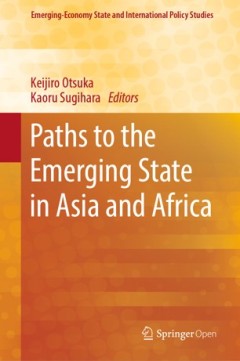
Paths to the emerging state in Asia and Africa
This book addresses the issue of how a country, which was incorporated into the world economy as a periphery, could make a transition to the emerging state, capable of undertaking the task of economic development and industrialization. It offers historical and contemporary case studies of transition, as well as the international background under which such a transition was successfully made (or…
- Edition
- -
- ISBN/ISSN
- 9789811331312
- Collation
- -
- Series Title
- -
- Call Number
- 338.90091724 PAT p
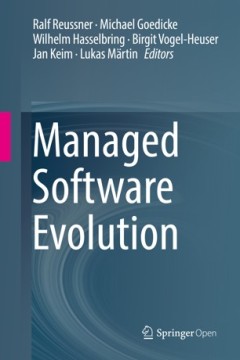
Managed software evolution
This open access book presents the outcomes of the “Design for Future – Managed Software Evolution” priority program 1593, which was launched by the German Research Foundation (“Deutsche Forschungsgemeinschaft (DFG)”) to develop new approaches to software engineering with a specific focus on long-lived software systems. The different lifecycles of software and hardware platforms lead …
- Edition
- -
- ISBN/ISSN
- 9783030134990
- Collation
- xxii, 426p. : ill.
- Series Title
- -
- Call Number
- 005.1 MAN m
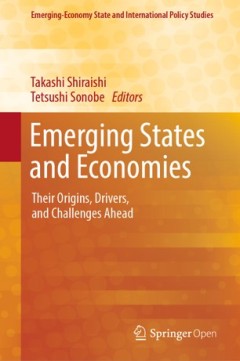
Emerging states and economies : their origins, drivers, and challenges ahead
This open access book asks why and how some of the developing countries have “emerged” under a set of similar global conditions, what led individual countries to choose the particular paths that led to their “emergence,” and what challenges confront them. If we are to understand the nature of major risks and uncertainties in the world, we must look squarely at the political and economic…
- Edition
- -
- ISBN/ISSN
- 9789811326349
- Collation
- x, 177p. : ill.
- Series Title
- -
- Call Number
- 338.9 EME e
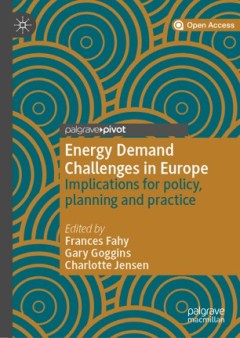
Energy demand challenges in Europe : implications for policy, planning and pr…
This open access book examines the role of citizens in sustainable energy transitions across Europe. It explores energy problem framing, policy approaches and practical responses to the challenge of securing clean, affordable and sustainable energy for all citizens, focusing on households as the main unit of analysis. The book revolves around ten contributions that each summarise national trend…
- Edition
- -
- ISBN/ISSN
- 9783030203399
- Collation
- xv, 157p. : ill.
- Series Title
- -
- Call Number
- 333.79094 ENE e
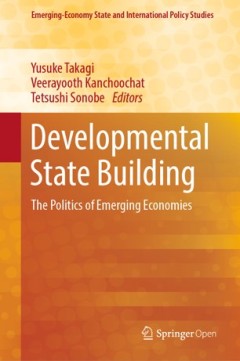
Developmental state building : the politics of emerging economies
This open access book modifies and revitalizes the concept of the ‘developmental state’ to understand the politics of emerging economy through nuanced analysis on the roles of human agency in the context of structural transformation. In other words, there is a revived interest in the ‘developmental state’ concept. The nature of the ‘emerging state’ is characterized by its attitude t…
- Edition
- -
- ISBN/ISSN
- 9789811329043
- Collation
- xiv, 185p. : ill.
- Series Title
- -
- Call Number
- 338.9 DEV d
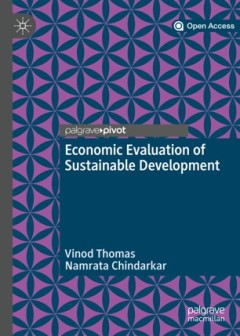
Economic evaluation of sustainable development
This book presents methods to evaluate sustainable development using economic tools. The focus on sustainable development takes the reader beyond economic growth to encompass inclusion, environmental stewardship and good governance. Sustainable Development Goals (SDGs) provide a framework for outcomes. In illustrating the SDGs, the book employs three evaluation approaches: impact evaluatio…
- Edition
- -
- ISBN/ISSN
- 9789811363894
- Collation
- xxiii, 145p. : ill.
- Series Title
- -
- Call Number
- 338.927 THO e
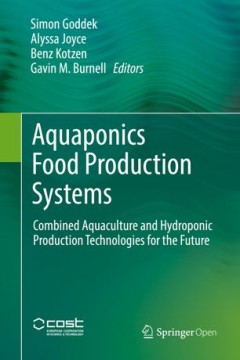
Aquaponics food production systems : combined aquaculture and hydroponic prod…
This open access book, written by world experts in aquaponics and related technologies, provides the authoritative and comprehensive overview of the key aquaculture and hydroponic and other integrated systems, socio-economic and environmental aspects. Aquaponic systems, which combine aquaculture and vegetable food production offer alternative technology solutions for a world that is increasingl…
- Edition
- -
- ISBN/ISSN
- 9783030159436
- Collation
- xvi, 619p. : ill.
- Series Title
- -
- Call Number
- 577.7 AQU a
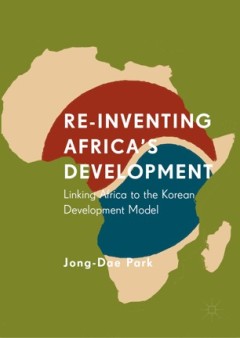
Re-inventing Africa's development : linking Africa to the Korean development …
This open access book analyses the development problems of sub-Sahara Africa (SSA) from the eyes of a Korean diplomat with knowledge of the economic growth Korea has experienced in recent decades. The author argues that Africa's development challenges are not due to a lack of resources but a lack of management, presenting an alternative to the traditional view that Africa's problems are caused …
- Edition
- -
- ISBN/ISSN
- 9783030039462
- Collation
- xxi, 449p. : ill.
- Series Title
- -
- Call Number
- 338.967 PAR r
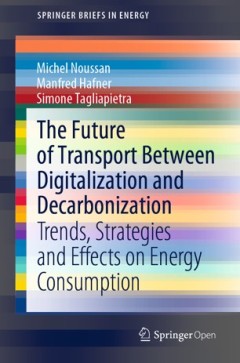
The Future of transport between digitalization and decarbonization : trends, …
Energy systems are rapidly transitioning towards decarbonization, thanks in part to innovative digital technologies and changing mobility demands. This open access book examines the decarbonization and digitalization transformation in the transport sector, with a particular focus on energy consumption. By studying historical trends and outlining future scenarios, the authors illustrate the evol…
- Edition
- -
- ISBN/ISSN
- 9783030379667
- Collation
- xv, 112p. : ill.
- Series Title
- -
- Call Number
- 628.532 NOU f
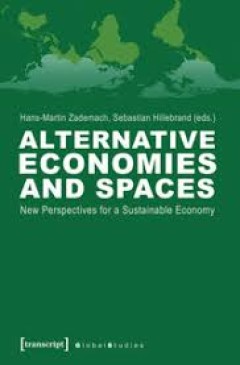
Alternative economies and spaces: new perspectives for a sustainable economy
The volume entails a collection of contributions by leading scholars (Raymond Bryant, Michael K. Goodman, Benjamin Huybrechts, Andrew E.G. Jonas, Roger Lee, Peter North, and Katinka Weber) concerned with alternative modes of economic and social exchange. The cases addressed in these contributions – including credit unions, alternative currencies, sustainable consumption, and social enterprise…
- Edition
- -
- ISBN/ISSN
- 9783837624984 (pbk.)
- Collation
- 156 pages ; 23 cm.
- Series Title
- Global studies (Bielefeld, Germany)
- Call Number
- 330 ZAD a
 Computer Science, Information & General Works
Computer Science, Information & General Works  Philosophy & Psychology
Philosophy & Psychology  Religion
Religion  Social Sciences
Social Sciences  Language
Language  Pure Science
Pure Science  Applied Sciences
Applied Sciences  Art & Recreation
Art & Recreation  Literature
Literature  History & Geography
History & Geography